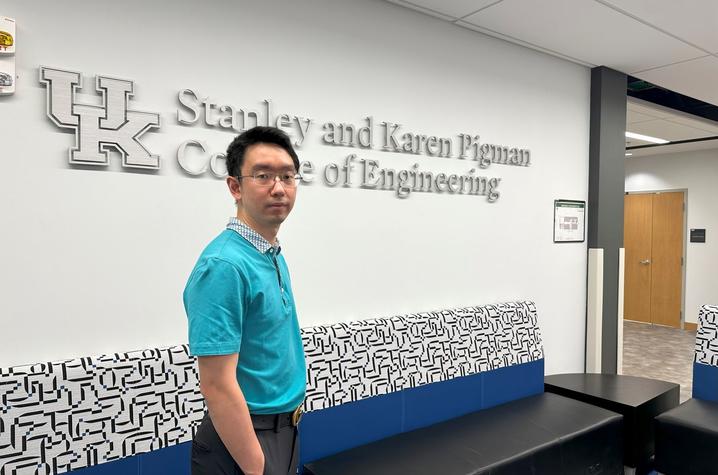Dr. Xu Jin’s Cutting-Edge Research on Cooperative Control Algorithms Aims to Enhance Drone Security and Capture Rogue UAVs
by DRONELIFE Staff Writer Ian J. McNabb
A professor at the University of Kentucky recently received a prestigious research award from the NSF for his innovative work on making drones safer. Xu Jin, Ph.D., assistant professor in the Department of Mechanical and Aerospace Engineering in the UK Stanley and Karen Pigman College of Engineering, has received the prestigious National Science Foundation (NSF) Faculty Early Career Development (CAREER) Award. As part of the grant, the NSF will support Jin with $542,714 over five years for his research involving learning-based cooperative control algorithms for multi-agent systems to capture and manage target drones.
It Takes a Drone to Catch a Drone
As concerns rise around the unauthorized use of drones near sensitive sites like airports, Jin’s innovative approach uses multiple drones with nets to capture target rogue UAVs.
“We want to use multiple unmanned aerial vehicles, what we call UAVs, to collaboratively and autonomously put the drone out of the sky with a capture net carried by these unmanned aerial vehicles,” said Jin. “We have mainly two major technical difficulties. One, of course, is the safety concerns. We want to capture the drone, which means we must fly close to the target drone. But we do not want to collide with the drone. We want to ensure safety.”
Being able to accurately predict target behavior is another technical hurdle, and that involves learning the drones movement patterns.
“The target does not want to be captured. We must learn the target behavior, as well as to learn the environmental factors,” said Jin. “All these things must be taken into consideration by what we call ‘deep neural network learning’ which mimics human brain behavior.
“At the end of the five years, hopefully we will achieve a few things. We will hopefully bring low-cost, widely accessible technology to accomplish the mission of drone capturing for the civilian market. To achieve this, we will develop learning-based cooperative control algorithms for this kind of multi-agent system collaboration.”
The National Science Foundation Award
The CAREER Award is one of the “most prestigious awards in support of the early career-development activities of those teacher-scholars who most effectively integrate research and education within the context of the mission of their organization,” according to NSF.
Jin said, “This award will also bring visibility to our research so that hopefully down the road, we will attract more contribution and collaboration from all over the country so that different people with similar interests can work together.”
Read more:
- This Drone Steals Power from the Nearest Power Lines to Charge Its Battery and Keep Flying
- Protecting the FIFA World Cup from Rogue Drones
- The Regulatory Environment for Counter UAS: a DRONELIFE Exclusive from AUVSI NE
Miriam McNabb is the Editor-in-Chief of DRONELIFE and CEO of JobForDrones, a professional drone services marketplace, and a fascinated observer of the emerging drone industry and the regulatory environment for drones. Miriam has penned over 3,000 articles focused on the commercial drone space and is an international speaker and recognized figure in the industry. Miriam has a degree from the University of Chicago and over 20 years of experience in high tech sales and marketing for new technologies.
For drone industry consulting or writing, Email Miriam.
TWITTER:@spaldingbarker
Subscribe to DroneLife here.
